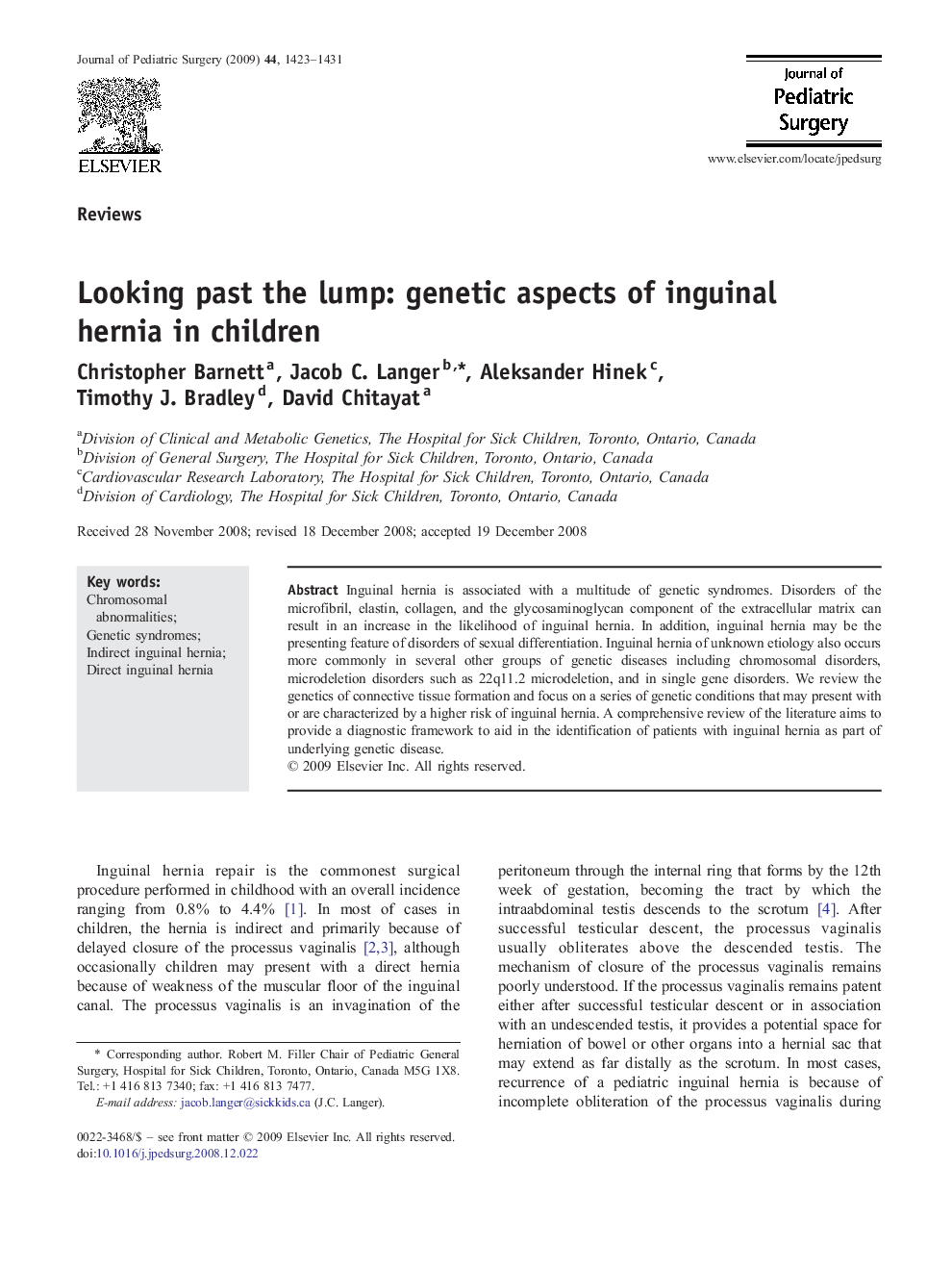| Article ID | Journal | Published Year | Pages | File Type |
|---|---|---|---|---|
| 4158030 | Journal of Pediatric Surgery | 2009 | 9 Pages |
Inguinal hernia is associated with a multitude of genetic syndromes. Disorders of the microfibril, elastin, collagen, and the glycosaminoglycan component of the extracellular matrix can result in an increase in the likelihood of inguinal hernia. In addition, inguinal hernia may be the presenting feature of disorders of sexual differentiation. Inguinal hernia of unknown etiology also occurs more commonly in several other groups of genetic diseases including chromosomal disorders, microdeletion disorders such as 22q11.2 microdeletion, and in single gene disorders. We review the genetics of connective tissue formation and focus on a series of genetic conditions that may present with or are characterized by a higher risk of inguinal hernia. A comprehensive review of the literature aims to provide a diagnostic framework to aid in the identification of patients with inguinal hernia as part of underlying genetic disease.
